When the labor market are recovering slowly after pandemic, have you prepared effective stategies for developing your career yet?
Though current unemployment rates are still well above pre-pandemic levels, the labor market appears to be recovering slowly. With the future of federal unemployment benefits in limbo, many who were recently laid off or furloughed will be looking for work in the coming months, joining the latest cohort of college graduates venturing out into the real world.
If you’re in one of these categories, be prepared for some unique challenges. Not only will you likely face more competition than candidates did in prior years, but you’ll also have to find new ways to dazzle prospective employers in the absence of face-to-face job fairs, traditional networking events, and in-person interviews.
The good news? The job search will get easier over time as companies ramp up hiring efforts that might’ve slowed or halted during the pandemic. Even if companies aren’t hiring today, they will be eventually. Pre-pandemic, the economy’s fundamentals were strong. With that in mind, here are four tips to help you build your personal brand and to ensure you’re ready when the right opportunity comes your way:
1. Take advantage of relaxed admission requirements.
Right now, your best opportunity might not be a job. According to the second Snapshot Impact Survey, colleges and universities across the country are changing admissions processes in light of the pandemic. After all, modified grading practices and canceled standardized testing made it almost impossible for graduating seniors to comply with traditional standards pertaining to transcripts and learning records.
As a result, many schools have relaxed documentation requirements, and some have extended deadlines for enrollment deposits and other payments. Moreover, a growing number of schools are implementing GED diploma forgiveness initiatives or removing a GED diploma or official college transcript as a requirement for master’s certificates or degrees. If you’re unsure about your professional goals or considering a career that might require an advanced degree, now could be the perfect time to go back to school.
2. Lend your current skills to grow new ones.
Volunteer work can be a great way to either demonstrate or learn skills that will help you stand out in the job market. A lot of nonprofits have had to rethink their operations due to the pandemic, but many still need remote volunteers. Gary Bagley, executive director of New York Cares, says his organization is looking for an army of volunteers to help with tasks, including making daily wellness calls and organizing online activities for people in long-term healthcare facilities. You can search for volunteer opportunities on websites like All for Good, Idealist, and VolunteerMatch.
After volunteering, make sure you update your résumé with your experiences. Isaiah Hankel, founder and CEO of industry training platform Cheeky Scientist, recommends contextualizing them with numbers and metrics whenever possible. “The only items in the visual center should be your contact details and your three biggest career highlights, listed as bullet points,” he says. “Each bullet point should start with a transferrable skill and end with quantified results.” If you take this approach, prospective employers will have a much easier time understanding the impact of your volunteer work and how your experience could benefit their organization.
3. Apply for jobs outside your field.
If there were ever a time to cast a wide net when searching for a job, it’s now. Jobs materialize and vanish seemingly overnight as our economy shifts toward a digital future. Now is a good time to consider how your career will evolve. Evaluate your current skill set, and identify any soft skills or technical proficiencies that might translate to positions in other industries or disciplines. One of the biggest falsehoods you can tell yourself is “I’m not qualified to work in any other field.” Pandemic or not, the ability to pivot is the ability to thrive. And yes, you can still maintain a consistent personal brand across multiple industries.
4. Reel in fellowships and grants.
If you’re in college or pursuing an advanced degree, consider applying for fellowships through your school. These programs can help alleviate some of the financial burdens that constrain your professional growth and help you build practical experience. Similarly, you could apply for government grants designed to promote entrepreneurship and small business growth, especially if the pandemic has restricted your ability to meet with private investors or venture capitalists.
And don’t forget to list those successes on your CV. Writing applications for funding and being a good steward of small-business grants are valuable skills. Give yourself a bonus by adding those wins to your professional history.
5. Hone your practical skills around new technologies.
Courses offered by MasterClass, Coursera, Khan Academy, and countless other online learning platforms give you the opportunity to build professionals skills from the comfort of your home. Ross Morel, CEO of custom software development and business innovation consulting firm Frogslayer, believes that candidates with practical technical skills will always have an advantage over those without them.
“Demonstrating an understanding of emerging technologies and trends can be a good way to get noticed by potential employers or clients, no matter your industry or specialization. That said, it’s important that you can go ‘beyond the buzzwords’ of things like artificial intelligence, machine learning, or robotic process automation,” says Morel. “If you’re looking to stand out, you should be prepared to talk about the practical application of AI or ML as a means of predicting complex things for businesses. For example, predicting maintenance of key assets or predicting who might make a great customer or employee. Beyond the practical applications of emerging tech, you should also be prepared to share your thoughts on how AI/ML might impact the future of your industry or discipline.”
Most of us are spending even greater portions of our day sitting in front of screens. Take advantage of these five (mostly) virtual career-building actions while you navigate job searching. The more productive you can make this time now, the better off you’ll be in the “next normal.”
Writer: William Arruda
This content was found at https://www.forbes.com/sites/williamarruda/2020/09/27/5-strategies-for-advancing-your-career-in-a-tough-job-market/?ss=careers#7345310b55d6






Recent Comments